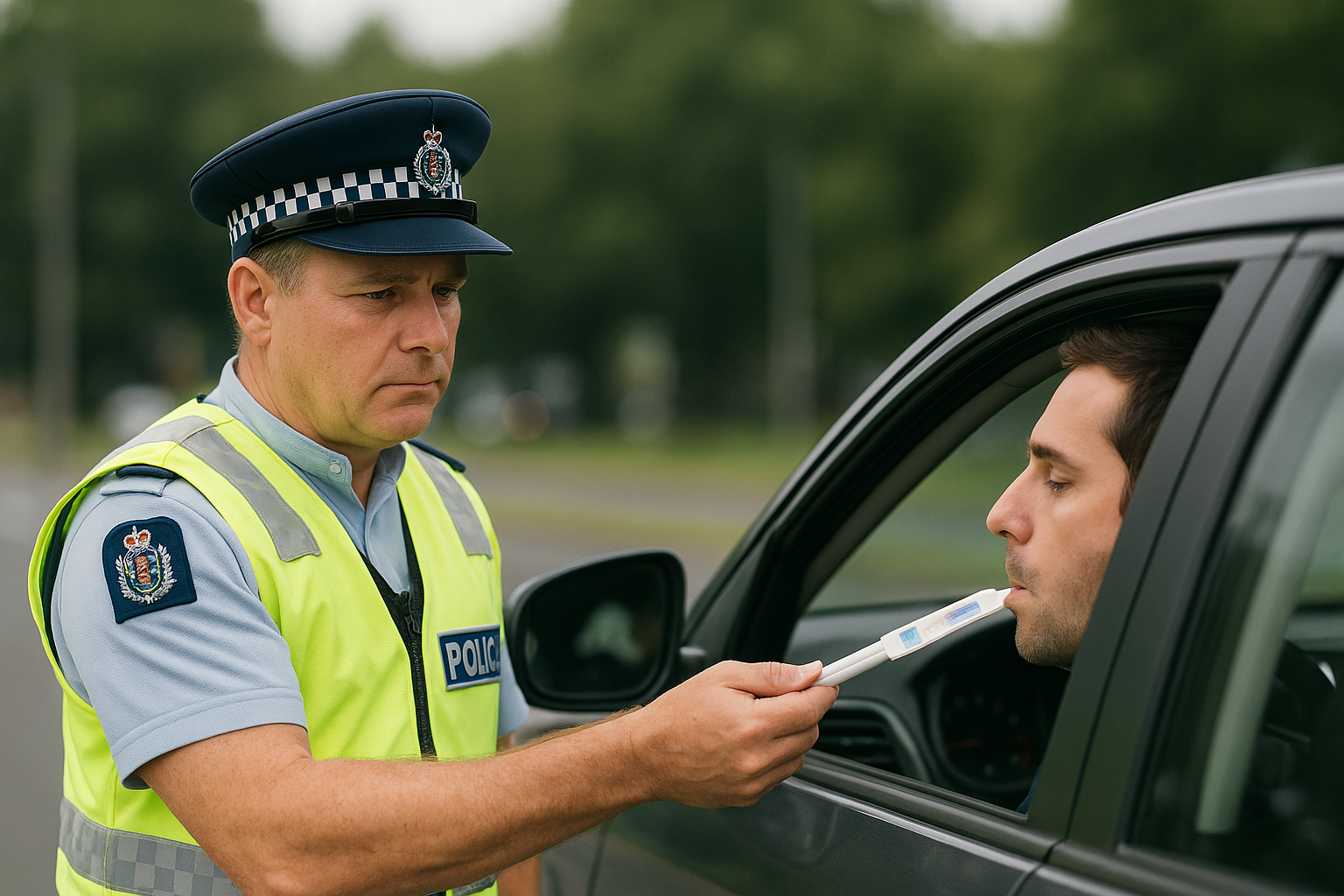New Law Empowers Police to Conduct Drug Tests to Improve Road Safety
Transport Minister Chris Bishop highlighted the urgent need for the legislation, pointing to alarming statistics around drug use and fatal crashes.

- Country:
- New Zealand
In a significant move to reduce road deaths and improve public safety, the New Zealand Parliament has passed legislation enabling police officers to carry out roadside drug testing. The bill, which cleared its third and final reading today, marks a major step forward in the Government’s commitment to tackling drug-impaired driving — one of the key contributors to fatal road crashes in recent years.
Transport Minister Chris Bishop highlighted the urgent need for the legislation, pointing to alarming statistics around drug use and fatal crashes. “Drivers who consume impairing drugs are a significant danger on our roads,” he said. “In recent years, around 30 percent of road deaths have resulted from crashes involving drivers who had consumed impairing prescription or illicit drugs.”
The Government’s road safety strategy has identified drug impairment as one of the major risks on New Zealand roads, alongside speeding, alcohol, and failing to wear seatbelts. The new law introduces an oral fluid testing regime that mirrors existing drink-driving enforcement, giving Police greater power to detect and deter drug-impaired drivers before they cause harm.
How the Roadside Testing Will Work
The regime will allow police to screen drivers at the roadside using oral fluid testing devices, even if there is no immediate suspicion of drug use. This randomised approach is similar to the breath testing used to enforce drink-driving laws.
To ensure fairness and accuracy, two positive screening tests will be required before a driver can be temporarily prohibited from driving. If a driver tests positive twice, they will be banned from driving for 12 hours to prevent any immediate road safety risk. However, an infringement penalty — such as a fine — will only be issued if a laboratory test confirms the presence of impairing drugs.
Drivers who refuse to comply with a roadside drug test will face penalties as well, including an infringement notice.
Implementation and Enforcement Targets
The law’s passage fulfills a key commitment in the Government’s Q1 Action Plan, which aimed to have the legislation passed by March 31, 2025. Bishop confirmed the government has now met that milestone ahead of schedule.
But the legislation is only the beginning. The Government is targeting December 2025 for full rollout of the testing regime, allowing time for necessary operational procedures, regulations, and equipment to be put in place.
Once operational, the Police are expected to conduct 50,000 oral fluid tests per year. This target is set out in the Government Policy Statement on Land Transport 2024, underscoring the seriousness with which authorities are treating drug-impaired driving.
Part of a Wider Road Safety Push
This latest development is part of a broader initiative by the Government to reduce the toll of serious and fatal crashes across New Zealand. By focusing on high-risk behaviors — including drug and alcohol impairment — officials hope to create safer roads for all users.
“Roadside drug testing will be a vital tool for law enforcement,” said Bishop. “It not only allows us to catch and deter those who are driving under the influence, but also sends a strong message that drug-impaired driving is unacceptable.”
Further details on the rollout of testing devices, training for officers, and public education campaigns are expected to be released in the coming months as preparations accelerate.
Public Support and Next Steps
Public safety groups and road safety advocates have welcomed the legislation, seeing it as a long-overdue measure to address a growing problem on New Zealand roads. With support from across Parliament and growing concern over drug-related crashes, the move is seen as a necessary evolution in traffic enforcement.
As the Government now shifts focus toward implementation, all eyes will be on how effectively the new regime is introduced — and whether it delivers the life-saving impact officials are aiming for.
- READ MORE ON:
- Parliament
- Chris Bishop










